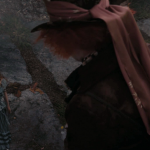Weekly News Roundup (14 February 2010)
It’s two occasions in one today, a happy Valentines Day and Happy Chinese New Year to everyone. There’s slight more news this week, so no need to drag a single story out to a full blog, like last week. I also wrote a new guide this week on how to get MKV files to play on your Xbox 360, using the software GOTSent. The PS3 version of the guide, which will be using mkv2vob should be up sometime next week.

Let’s get things started with copyright news. We start with the, perhaps slightly optimistic, but potentially good news that the secret copyright treaty, the ACTA, might be in trouble.
Apparently, the various parties negotiating the treaty are failing to agree on various matters, and not all parties are keen on the secrecy part. The RIAA, MPAA and other trade organisations are no doubt busy trying to save the treaty, which could be the best thing since the DMCA in their eyes. They’ve tried to keep in a secret because the public backlash from controversial provisions (that could see people’s iPods being searched at airports for illegal downloads) would be too great. But it’s hard to keep a secret when the Internet exists. And countries typically don’t like a treaty that locks them into something too rigidly, and without rigid obedience to it, there’s really not much point in having this type of treaty.
Tim Burton’s new film Alice in Wonderland (HD trailer) may not be shown across the majority of cinemas in the UK due to a dispute with Disney. Disney’s plans to reduce the theatrical showing window, from 17 weeks to 12 weeks, have angered the cinema owners and they have threatened to boycott the film. Disney tried the same with animated hit Up, and cinema owners responded in the same way, but the studio backed down eventually. Studios like Disney are trying to bring films earlier to DVD and Blu-ray, as they have much more control over these formats in terms of revenue, and studios are also claiming it somehow prevents piracy as well. They do have a point in that most of the business at the cinema goes away after the first 8 weeks, so 12 weeks should be enough. But the problem is that if people know that they don’t have to wait long for the home video version, then they may skip the film at the cinema entirely. Of course, that’s only true of some people, as most feel that going to the cinema and watching the same movie at home are two completely different experiences, much like eating at home or at a restaurant – when money is not an issue, you can’t really substitute one for the other. But it just shows that for all the talk about protecting the industry, film studios only really care about protecting their own profits, and who cares if others in the business suffer as a result.
Staying in the UK, a couple of months ago, the BBC applied for DRM to be added to their high definition TV broadcasts. At that time, the British Office of Communication, Ofcom, denied the request, but it seems that persistence is paying off and the BBC might get its wish (or rather, the US TV networks and movie studios might see their pressuring of the BBC bear fruit). So why is DRM bad for HDTV? It’s bad because it can be used to prevent the recording or time shifting of TV programmes. It can also limit development of open source and free viewing software, since a licensing fee has to be paid to the DRM creators. And this fee also adds to the cost of otherwise free to air television. And it will still fail to prevent some clever person from recording the TV show and uploading it online. So why is the BBC so keen on DRM? Well, the pressure from the US might be intense and I’m sure threats of stopping the supply of programmes to the BBC and moving them onto other more secure broadcast systems such as subscription television will have the BBC, and Ofcom, worried as well.
Also in the “we love DRM camp” is the publishers of the game Bioshock 2, 2K Games. So much so, they’ve added 3 different layers of DRM to the game to provide redundant copy protection that still failed to protect the game from being copied. Microsoft’s “Games For Windows” system is used for the disc version, and it already provides a few layers of DRM, and that would be more than enough for most publishers as it features online authentication. But add in limited installs, and then Sony’s SecuROM (the system that’s so hard to remove, that it’s starting to look like malware), and you just have to shake your head at how paranoid game publishers have become. A word of advice: stop losing sleep about the “lost” income from piracy, income that you probably wouldn’t have earned anyway had the pirated version not been made available, as there’s a finite amount of money people can spend on games. Instead, worry about losing your customers to piracy due to idiotic DRM schemes, because that’s a real threat. This is all part of the theory that game publishers’ actions may actually be contributing to piracy. I’m not sure about that, but they certainly have failed to prevent it.
One theory is that lower prices do help to combat piracy, not only for games but for movies and music as well. Apple is keen to test out this theory, and they want TV networks to agree to lowering prices of TV shows on iTunes to under $1, which will no doubt also help the iPad at launch. As expected, they are running into resistance from the TV networks, who sees any price cut as an invitation for more in the future. While it may be simplistic to say that something is only worth as much as people are willing to pay for it, but this is truer for digital content then physical goods, which have physical costs attached to producing each individual item. For me, it’s all about finding the right price, that will discourage people to get the content from illegal sources, and at the same time also provide a healthy profit for content owners.
And bad news for video sharing website Veoh. After winning a legal battle against Universal Music, they may be going out of business anyway. The legal battle prevented the sale of the website, and when it was over, it was too late to obtain further funding. Whether this is more due to the increasing competition in the sector, or whether the legal battle too more of a toll than it appears, it’s hard to say.

Let move on 3D/HD news. I’ve mentioned Toshiba’s impressive Cell TV before, the one that uses the same processor as the PS3 to enable 8 HDTV channels to be simultaneously displayed on the TV, in Back to the Future II style.
But with every other manufacturing trumpeting their 3D lineups, Toshiba was oddly quiet, and refused to even provide information as to which 3D format they will be going with. Perhaps they don’t want to get burned again with another format war by choosing a side right now. Or perhaps there’s really no format to go with even if they wanted to. The Blu-ray 3D specs are a start though. In any case, the Toshiba Cell TV has enough power to convert 2D broadcasts into 3D (well, pseudo 3D, anyway), so whichever format Toshiba decides to go with, it should be quite brilliant.
Speaking of format wars, the HTML5 format war is brewing nicely, with the latest version of Opera supporting HTML5, but only the Ogg Theora codec. So on top of the Flash vs HTML5 video delivery war, we also have the Ogg Theora vs H.264 war. Makers of free browsers like Ogg Theora because it’s free, whereas H.264 has licensing costs that have to be paid by somebody. But the industry prefers H.264, since hardware acceleration support is widely available, and it produces better quality streams than Theora at the moment. The likes of Apple and Google can of course absorb the costs, but it’s probably too much for the likes of Mozilla or Opera to do the same. The H.264 licensing people, the MPEG-LA, really needs to do something about this, perhaps eliminate royalty payments for certain browser manufacturers or something.
And on a related note, Hulu is gearing up for HTML5 compatibility (it uses H.264, just like YouTube and Vimeo’s HTML5 efforts), and so this could mean Hulu for the iPad, which would be a big selling point for Apple.
![]()
And finally in gaming, the January NPD US video game sales figures are out, and I will have the write up of it nearly next week. A sneak preview: The Wii won, the Xbox 360 beat the PS3 thanks to Mass Effect 2. Only the PS3 showed significant growth year on year, but that’s only because it wasn’t exactly selling like the proverbial hotcakes this time last year.
And the 2009 Game of the Year poll has been closed, or rather, moved off the front pages. CoD: Modern Warfare 2 won, beating second place Assassin’s Creed 2, with Uncharted 2 being the best of the platform exclusive titles.
And so that’s another week. It’s now the year of the Tiger, so 恭喜发财, 万事如意 (which roughly translates to “may you get rich, may your wishes come true and death to DRM”).




February 27th, 2010 at 3:08 pm
That DRM they’re pushing in the UK is that for over the air HDtv? Because you could only get so much HDTV over the air and would need subscription service anyway. Which correct me if I’m mistaken would be cable/satellite etc… I don’t think the paid companies would like that DRM too much as you stated it will prevent all kinds of options already included from working.